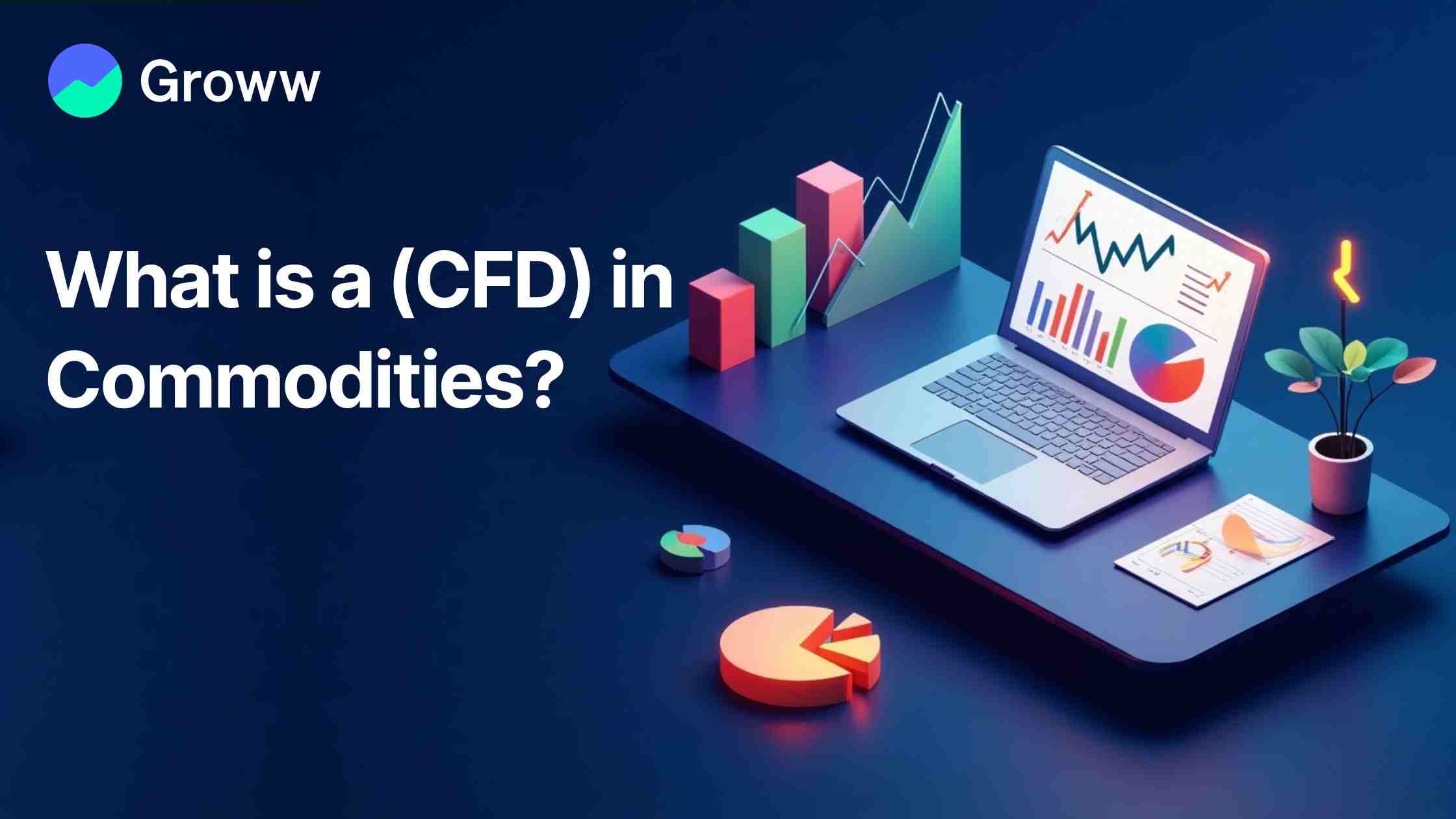What is a Contract for Difference (CFD) in Commodities?

A contract for difference in commodities (CFD) is a trading agreement where the difference in the price of a commodity is exchanged by two parties between the time when the contract is closed and opened. This happens without actually owning the physical commodity in question.
CFDs allow traders to speculate on price movements of the commodity without having to hold the actual asset. They are derivatives that track the price of the underlying commodity.
What is Contract for Difference (CFD)?
Contract for Difference (CFD) in trading is a method of speculation on the price movements of commodities without actually owning the asset. You agree to exchange the difference in the price of the asset between the time of opening and closing the position.
How Do Commodity CFDs Work?
In the case of CFDs, you only trade the derivatives that track the price movement of the underlying commodity.
The idea is to profit from both rising and falling markets by either going long (betting on an increase in prices) or short (betting on a decrease in prices).
CFDs are leveraged products, i.e. you can control larger positions with smaller amounts of capital. However, this may amplify not just your profits, but also losses.
To deploy leverage, traders are required to deposit a percentage of the total position value, known as the margin.
Some brokers also impose a maintenance margin to safeguard against any potential losses. You may have to face a margin call in case your account balance goes below this threshold.
CFD trading also has costs like commissions, overnight funding charges, and spreads (difference between the buying and selling price). CFD trading comes with major risks, including the possibility of losing more than the initial investment owing to leverage.
Advantages of CFD Trading
Leverage
Control bigger positions with smaller amounts of capital. It could lead to higher returns, although the risks of losses are also high.
Global Access
CFD trading unlocks access to a diverse range of global markets from one platform.
Shorting Abilities
Profit from falling markets through short-selling. Meaning, you can bet against the asset price.
Flexibility
One advantage of CFD trading is the flexibility that you get in terms of horizons and trading strategies. It enables both short and long-term positions as well.
Mirroring the Underlying Market
CFDs are tailored to closely mirror their underlying market. Hence, you can sell or buy CFDs just like you would in the case of the underlying asset.
CFD vs Futures in Commodity Trading
Regulation & Trading Sites
CFDs are traded over-the-counter via brokers and platforms with limited regulatory aspects. Futures are more stringently regulated and traded on formal exchanges with standardization.
Contract Standardization
CFD has more flexible terms and customizable sizes of trades. On the other hand, futures are stringently standardized with contracts having fixed sizes, specifications, and delivery dates.
Settlement and Expiration
Futures have fixed dates of expiry with physical delivery or cash settlement choices. CFDs do not have expiration dates and you may hold them indefinitely, depending on the holding costs.
Counterparty Risk
CFDs bear higher risks since trades are between the broker and trader. Futures have relatively lower risks due to the guarantee of the exchange clearinghouse.
Fees & Costs
Futures have one-time commissions without ongoing charges, while CFDs have daily costs for broker spreads and overnight positions.
Market Access
Futures have higher capital requirements and are usually preferred by institutional traders. CFDs have lower capital requirements and offer easier access for retail investors.
Transparency in Pricing
CFDs have prices deriving from the underlying market and these may vary across brokers. On the other hand, futures come with centralized price discovery throughout exchanges. The same price is there for all participants in this case.
Risks Involved in CFD Trading
High Leverage Risks
CFDs give you the scope of controlling a larger position with relatively smaller capital amounts. It may not only scale up potential profits, but also the risk of losses. Any small adverse fluctuation may lead to major losses, thereby surpassing the initial deposit.
Liquidity Risks
CFD markets may be highly volatile and swift changes in pricing may make it tough to exit positions at your chosen price. It is true or liquid markets and also during times of high volatility in the market.
Counterparty Risks
CFDs are usually offered by brokerages/platforms and there are always risks of defaults or financial difficulties at their end.
Market Risks
You will be exposed to the price movements in the underlying assets and there will always be an element of market risk.